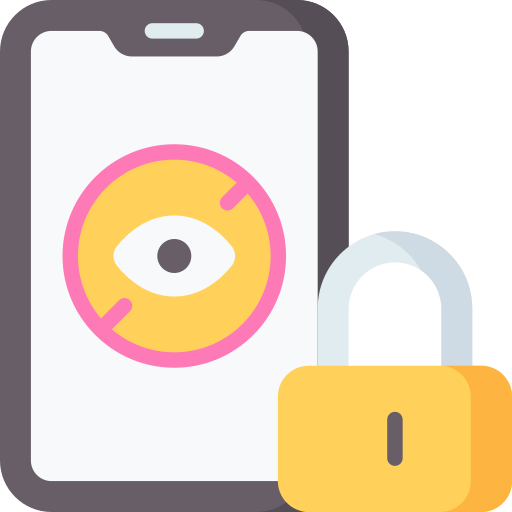Digital Citizenship: Understanding the Basics
Digital citizenship refers to the responsible and ethical use of technology, particularly in the online world. It encompasses a range of skills and knowledge that individuals need to navigate the digital landscape safely and effectively. Understanding the basics of digital citizenship is crucial for both children and adults alike.
One key aspect of digital citizenship is understanding how to protect personal information online. This includes being aware of privacy settings on social media platforms, using strong passwords, and being cautious about sharing sensitive information with strangers. By teaching individuals about online privacy and security, we can empower them to make informed decisions about their own digital footprint.
Another important component of digital citizenship is promoting responsible online behavior. This involves treating others with respect in virtual spaces, refraining from cyberbullying or harassment, and understanding the potential consequences of one’s actions online. By fostering empathy and kindness in our interactions on the internet, we can create a more positive online environment for everyone.
By providing individuals with a solid foundation in these basic principles of digital citizenship, we can equip them with essential skills for navigating today’s increasingly connected world. Whether it be protecting personal information or engaging responsibly with others online, understanding these fundamentals is vital for ensuring a safe and productive experience in the digital realm
The Importance of Digital Literacy in Today’s World
In today’s rapidly advancing digital age, the importance of digital literacy cannot be overstated. Digital literacy refers to the ability to navigate and effectively use technology and online resources. It encompasses skills such as searching for information, evaluating sources, communicating online, and protecting personal data. With technology playing an integral role in almost every aspect of our lives, being digitally literate is crucial for success in education, employment, and everyday life.
One key reason why digital literacy is important is its impact on education. In classrooms around the world, teachers are incorporating technology into their lessons to enhance learning experiences. Students who possess strong digital literacy skills have a significant advantage in accessing educational materials online, collaborating with peers through virtual platforms, and engaging with interactive content that promotes critical thinking and problem-solving abilities.
Furthermore, digital literacy has become essential for career advancement in today’s job market. Employers increasingly expect employees to have basic computer skills along with proficiency in using various software applications and navigating online platforms. Being digitally literate not only enables individuals to adapt quickly to new technologies but also opens up opportunities for remote work options or freelancing gigs that rely heavily on technological tools.
As we continue to embrace the benefits of living in a hyperconnected world, it becomes even more imperative that individuals develop strong digital literacy skills. By investing time and effort into mastering these competencies ourselves and promoting them among younger generations through education initiatives at schools or community centers, we can ensure that everyone has equal access to information while safeguarding against potential risks associated with the internet.
Components of an Effective Digital Citizenship Curriculum
An effective digital citizenship curriculum should include a comprehensive understanding of the rights and responsibilities that come with being an online citizen. This includes educating students about their digital footprint, teaching them how to protect their personal information, and promoting responsible behavior in online interactions. By providing students with this knowledge, they can navigate the digital world confidently and ethically.
Another important component of a digital citizenship curriculum is teaching students about cyberbullying and online harassment. Students need to understand the impact their words and actions can have on others in the virtual space. They should learn strategies for preventing and responding to cyberbullying incidents, as well as ways to promote kindness, empathy, and inclusivity online.
Critical thinking skills are also vital in today’s digital landscape. A strong digital citizenship curriculum should focus on developing these skills so that students can effectively evaluate information found online. They should be taught how to distinguish between reliable sources of information and those that may be biased or misleading. With these critical thinking skills, students will be better equipped to make informed decisions when navigating the vast amount of content available on the internet.
By incorporating these components into a digital citizenship curriculum, educators can empower students to become responsible and knowledgeable participants in the digital world. It is essential for schools to prioritize teaching these skills alongside traditional academic subjects so that students are prepared for success both offline and online.
Teaching Kids about Online Privacy and Security
Online privacy and security are crucial topics to teach kids in today’s digital age. With the increasing use of technology and social media, it is essential for children to understand how to protect their personal information and stay safe online.
One way to teach kids about online privacy is by emphasizing the importance of keeping personal information private. Children should be taught not to share their full name, address, phone number, or other sensitive details with strangers online. It is also important for them to understand that once something is shared on the internet, it can be difficult or even impossible to remove completely.
Another aspect of teaching kids about online privacy and security is discussing the potential risks associated with sharing photos and videos online. Children should be encouraged to think before they post anything that could potentially harm their reputation or compromise their safety. They need guidance on understanding what kind of content may be inappropriate or harmful if shared publicly.
Additionally, educating children about recognizing and avoiding scams or phishing attempts is crucial for their online safety. Kids should learn how to identify suspicious emails or messages asking for personal information and how to report any suspicious activity they encounter while using digital platforms.
By providing proper education on these topics at an early age, we can empower children with the knowledge they need to navigate the digital world safely while protecting their privacy and security.
Promoting Responsible Online Behavior
Promoting responsible online behavior is crucial in today’s digital age. With the increasing use of technology and social media platforms, it is important for individuals to understand their role in maintaining a safe and respectful online environment.
One way to promote responsible online behavior is through education and awareness. Schools and educational institutions can incorporate digital citizenship programs into their curriculum, teaching students about the potential risks and consequences of their actions online. By educating students about topics such as cyberbullying, privacy settings, and appropriate online communication, they can develop the necessary skills to navigate the digital world responsibly.
Another effective strategy for promoting responsible online behavior is setting clear expectations and guidelines. Parents, teachers, and other authority figures should establish rules regarding internet usage that align with ethical standards. These rules can include guidelines on sharing personal information, interacting with others respectfully, avoiding plagiarism or copyright infringement when using digital resources, and being mindful of one’s own digital footprint.
Furthermore, fostering open communication between parents/guardians/teachers and children/students is essential in promoting responsible online behavior. Encouraging dialogue about internet safety issues allows individuals to seek guidance when faced with challenging situations or encountering inappropriate content. By creating a supportive environment where questions are welcomed without judgment or punishment, individuals are more likely to make informed decisions while navigating the vast realm of the internet.
In conclusion,
promoting responsible online behavior requires a multi-faceted approach that includes education, setting clear expectations/guidelines,
and fostering open communication.
By implementing these strategies,
individuals can become active participants in creating a safer
and more respectful digital landscape
Addressing Cyberbullying and Online Harassment
Cyberbullying and online harassment have become prevalent issues in today’s digital age. With the rise of social media platforms and online communication, individuals, especially young people, are increasingly vulnerable to these forms of abuse. Addressing cyberbullying and online harassment is crucial in creating a safe and inclusive digital environment for everyone.
One effective strategy for addressing cyberbullying and online harassment is education. Schools should implement comprehensive programs that educate students about the consequences of their actions online and teach them how to recognize and respond to instances of cyberbullying. By promoting empathy, respect, and responsible behavior, students can develop the necessary skills to navigate the digital world without engaging in harmful behaviors.
In addition to education, it is essential for schools to establish clear policies regarding cyberbullying and online harassment. These policies should outline what constitutes unacceptable behavior, as well as the disciplinary measures that will be taken if such incidents occur. By setting clear expectations and consequences, schools can create a deterrent effect that discourages students from engaging in cyberbullying or harassing others online.
By implementing educational programs focused on addressing cyberbullying and establishing strong policies against such behavior, schools can play a vital role in preventing these issues from occurring or escalating further. It is important for educators, parents/guardians,and community members to work together collaboratively towards creating a safer digital space where all individuals feel respected and protected from harm.
Developing Critical Thinking Skills for Navigating the Digital World
Developing critical thinking skills is essential for navigating the digital world. With the vast amount of information available online, it is crucial that individuals are able to evaluate and analyze the credibility and reliability of sources. Teaching students how to think critically when consuming digital content can help them become discerning users of information.
One way to develop critical thinking skills in relation to the digital world is by encouraging students to question what they see online. They should learn to ask themselves who created the content, why it was created, and whether there might be any biases or hidden agendas behind it. By teaching students these questioning techniques, they can become more aware of potential misinformation or manipulation on the internet.
In addition, educators can foster critical thinking skills by promoting media literacy. This involves teaching students how to fact-check information, verify sources, and distinguish between reliable and unreliable websites or news outlets. By equipping students with these skills, they will be better equipped to navigate through a sea of information and make informed decisions based on evidence rather than hearsay or rumors.
Empowering Students to Become Digital Leaders
Digital leaders are individuals who not only possess the necessary technical skills but also have a deep understanding of digital citizenship. Empowering students to become digital leaders is crucial in today’s increasingly connected world. By fostering their leadership skills, we can ensure that they make responsible and ethical choices online.
One way to empower students to become digital leaders is by providing them with opportunities for active participation and collaboration. Encouraging them to take on leadership roles in group projects or discussions can help develop their confidence and decision-making abilities. Additionally, involving students in the creation of classroom rules or guidelines for online behavior allows them to take ownership of their digital citizenship journey.
Another important aspect of empowering students as digital leaders is teaching them about effective communication strategies. This includes emphasizing the importance of respectful and inclusive language when interacting with others online. Students should be encouraged to engage in constructive conversations, ask thoughtful questions, and consider multiple perspectives before forming opinions or making decisions.
Furthermore, educators can foster critical thinking skills by encouraging students to analyze and evaluate information found online. Teaching them how to fact-check sources, identify bias or misinformation, and think critically about the content they consume will enable them to navigate the vast amount of information available on the internet responsibly.
By empowering students as digital leaders, we equip them with the knowledge and skills necessary for success in both their personal lives and future careers. It is essential that we provide ongoing support and guidance as they navigate the complexities of our increasingly digitized world. Through this empowerment process, we are shaping responsible global citizens who understand how technology can be used positively while being mindful of its potential risks.
Incorporating Digital Citizenship into Existing Curriculum
One effective way to incorporate digital citizenship into existing curriculum is by integrating it into various subject areas. For example, in English language arts classes, teachers can assign projects that require students to research and evaluate online sources for credibility. This not only helps them develop critical thinking skills but also teaches them about the importance of verifying information before accepting it as fact.
In social studies classes, discussions and activities can be centered around responsible online behavior and the impact of digital actions on individuals and society as a whole. Students can explore case studies or engage in debates on topics such as cyberbullying, privacy rights, and ethical considerations when using social media platforms.
Furthermore, science classes can focus on teaching students about online safety measures and how to protect their personal information while using digital tools. They can learn about common threats such as phishing scams or identity thefts and ways to prevent falling victim to these cybercrimes.
By incorporating digital citizenship into various subject areas, educators provide students with real-world examples and applications of responsible technology use. This approach allows for a more comprehensive understanding of digital citizenship concepts while ensuring that they are seamlessly integrated into the existing curriculum without creating an additional burden for teachers or overwhelming students with separate lessons solely dedicated to this topic.
Evaluating the Effectiveness of Digital Citizenship Programs
One important aspect of digital citizenship programs is evaluating their effectiveness. This evaluation process allows educators and administrators to assess whether the program is achieving its intended goals and making a positive impact on students’ online behavior. By measuring outcomes and collecting data, schools can make informed decisions about the success of their digital citizenship initiatives.
One way to evaluate the effectiveness of a digital citizenship program is through student surveys or questionnaires. These tools can gather feedback from students about their knowledge, attitudes, and behaviors related to online safety, privacy, and responsible internet use. Analyzing survey results can provide insights into areas where students may need further education or support.
Another method for evaluating digital citizenship programs is by observing student behavior both online and offline. Educators can monitor how students interact with technology in various settings such as classrooms, computer labs, or during free time. By observing these behaviors firsthand, schools can identify any gaps in understanding or potential issues that need addressing.
Additionally, analyzing disciplinary records related to cyberbullying incidents or inappropriate online behavior can also help determine the effectiveness of a digital citizenship program. A decrease in such incidents over time suggests that the program has been successful in promoting responsible online behavior among students.
Overall, evaluating the effectiveness of digital citizenship programs is crucial for ensuring that schools are providing effective education on safe and responsible internet use. Through surveys/questionnaires, observations of student behavior, and analysis of disciplinary records; educators can gain valuable insights into areas where improvement may be needed while celebrating successes along the way.
What is digital citizenship?
Digital citizenship refers to the responsible and ethical use of technology, including the internet, social media, and other digital platforms.
Why is digital literacy important in today’s world?
Digital literacy is important because it allows individuals to navigate the digital world effectively and safely. It helps people understand how to use technology responsibly and critically evaluate online information.
What are the components of an effective digital citizenship curriculum?
An effective digital citizenship curriculum should include lessons on online privacy and security, responsible online behavior, addressing cyberbullying and online harassment, developing critical thinking skills, and empowering students to become digital leaders.
How can we teach kids about online privacy and security?
Kids can be taught about online privacy and security by teaching them about the importance of protecting personal information, using strong passwords, being cautious about sharing information online, and understanding the risks associated with online activities.
How can digital citizenship programs address cyberbullying and online harassment?
Digital citizenship programs can address cyberbullying and online harassment by teaching students about the consequences of such behavior, promoting empathy and respect online, and providing strategies for dealing with and reporting cyberbullying incidents.
How can critical thinking skills be developed for navigating the digital world?
Critical thinking skills for navigating the digital world can be developed by teaching students how to evaluate the credibility and reliability of online information, analyzing different perspectives, and considering the potential biases and motives behind online content.
How can students be empowered to become digital leaders?
Students can be empowered to become digital leaders by giving them opportunities to take on leadership roles in digital projects, encouraging them to share their knowledge and skills with others, and promoting the idea of using technology for positive change.
How can digital citizenship be incorporated into existing curriculum?
Digital citizenship can be incorporated into existing curriculum by integrating relevant topics and activities into different subject areas, such as discussing online research strategies in a science class or exploring media literacy in an English class.
How can the effectiveness of digital citizenship programs be evaluated?
The effectiveness of digital citizenship programs can be evaluated through various methods, including surveys, assessments, observations, and analyzing students’ online behavior and attitudes before and after participating in the program.




